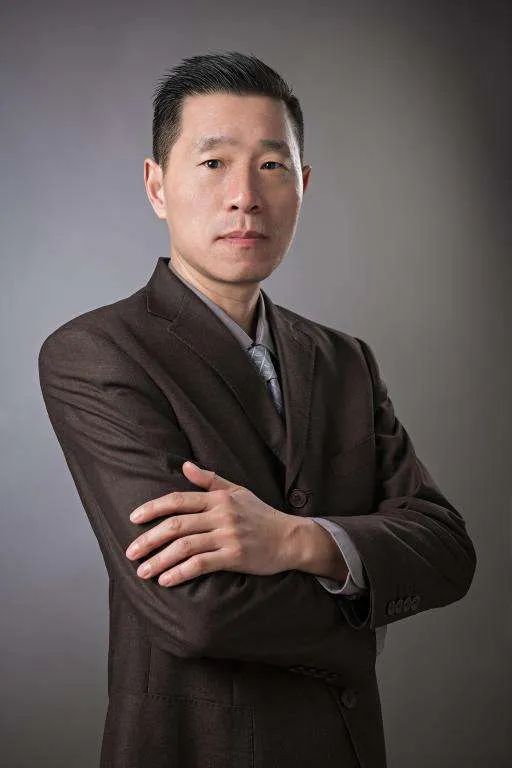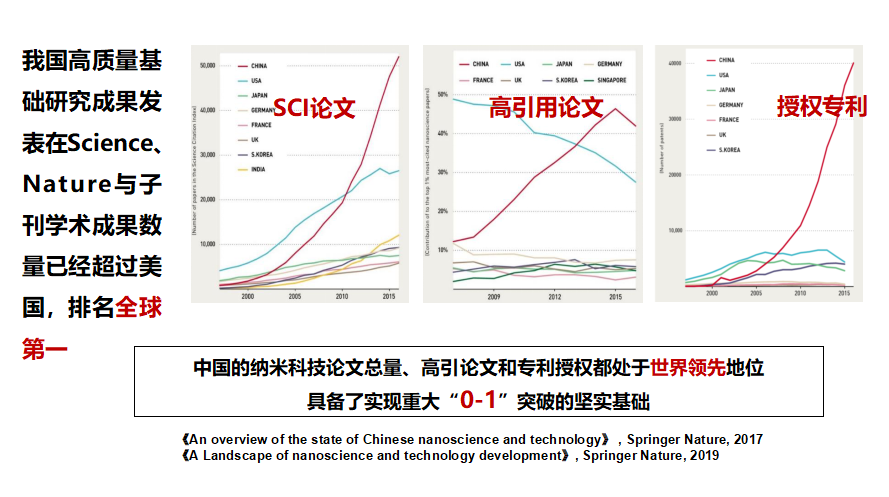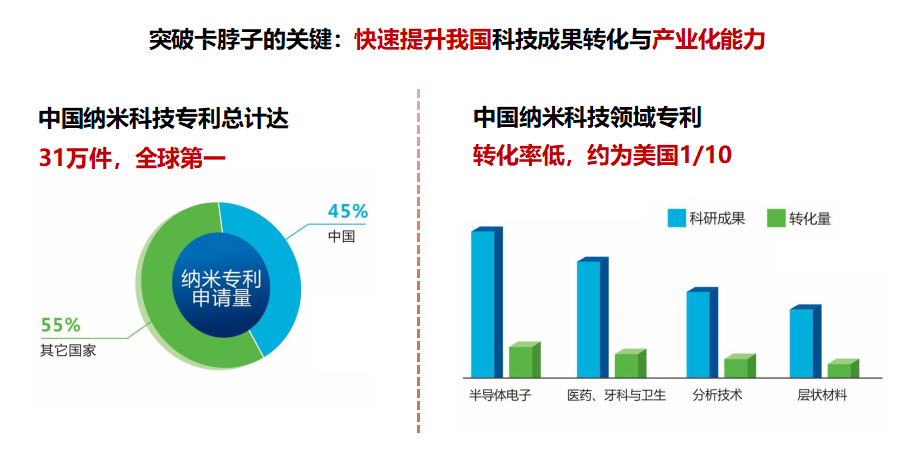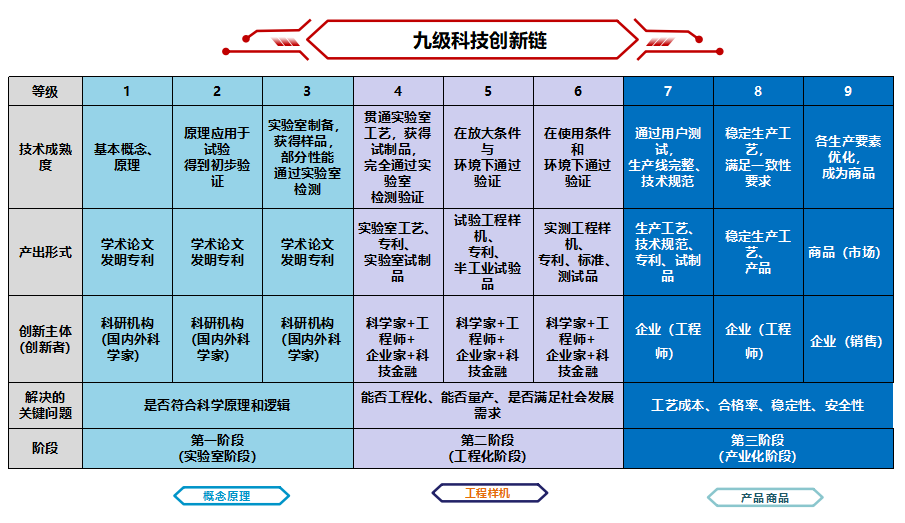What is the difficulty of "industry university research" when it comes to cutting-edge research and outdated application
Focus on industry university research
On March 8, 2022, the Ministry of Science and Technology, the Ministry of Education, the Ministry of Finance, and the Ministry of Human Resources and Social Security jointly issued the "Q&A Handbook on Several Opinions on Expanding the Autonomy of Universities and Research Institutes in Scientific Research", further bridging the "last mile" of implementing autonomy policies and adding fuel to the transformation of scientific research achievements.
At the same time, industry university research cooperation has also become a trend in the cosmetics industry. In the first quarter of 2022 alone, multiple companies announced strategic partnerships with university research institutes. This is not unrelated to national policy guidance, industry development, and brand strategy planning.
So, in the face of the strong R&D capabilities of multinational corporations and the catching up national brands, can they achieve overtaking through industry university research and achieve curve overtaking? In the face of fierce survival battles, can emerging brands, through industry university research, add wings of endurance, and complete upgrading challenges?
Based on this, Beautiful Practice Big Data has planned【Focus on industry university research】Special topic, focusing on the industry academia research trend in the cosmetics industry, conducting exclusive interviews with industry experts and professors from universities, research institutes, brands, etc., revealing the advantages and difficulties of industry academia research cooperation, and sharing the industry's thoughts on the current situation and future of industry academia research cooperation.
The first episode of this topic was interviewedProfessor Liu Wei from Huazhong University of Science and TechnologyHe will take us to interpret the current situation of industry university research in the cosmetics industry from the perspective of universities.

Expert Introduction
Liu WeiProfessor/doctoral supervisor at Huazhong University of Science and Technology, head of the Department of Nanomedicine and Biopharmaceuticals at the School of Life Sciences and Technology, and leader of the Nanoformulation discipline at the National Nanodrug Engineering Technology Research Center. Vice President of the Transcutaneous Administration Professional Committee of the World Federation of Traditional Chinese Medicine, and expert in the evaluation of the National Key Research and Development Program for Nanotechnology.
Research directionMainly engaged in basic research on nano drug delivery systems and their biological effects, as well as the development and industrialization of nano carriers. As the project leader, I have undertaken more than 40 national level scientific research projects, local government science and technology projects, and enterprise cooperation projects, published over 150 academic papers, obtained 50 national invention patent authorizations, and edited and published the first monograph in the relevant field in China, "Transcutaneous Drug Delivery Nanotechnology".
Professor Liu Wei is very busy every day.
In addition to shuttling between schools, engineering centers, and companies, he often needs to travel to cosmetics companies across the country. This is his eighth year engaged in the transformation of scientific and technological achievements in the cosmetics industry.
Established in 2014, Wuhan Baisi Kairui Biotechnology Co., Ltd(hereinafter referred to as "Baisikairui")So far, Professor Liu Wei has visited more than 150 cosmetics brands and OEM/ODM companies. Under his efforts, the application of transdermal delivery nanocarrier technology in the field of functional cosmetics has become increasingly smooth.
Baisi Kairui is backed by Huazhong University of Science and Technology and the National Nanodrug Engineering Technology Research Center. Currently, it has established partnerships with companies including Huaxi Biology, Yixian E-commerce, Membrane Family, Kesimeshi, Dexin, and Jiabiyou(Zhongke Optics Valley)Nearly 20 cosmetics industry chain enterprises, including, have launched industry university research cooperation.
During this process, Professor Liu Wei witnessed the transition of Chinese cosmetics entrepreneurs from a marketing background to a technological background.
In his opinion, market affairs should still be left to the market to handle. The policies and platforms of national and local governments are certainly important, but they are not the fundamental factors for doing a good job in industry university research.The fundamental principle of industry university research is for enterprises to recognize the importance of new technologies for their survival and development, while universities actively encourage teachers to carry out technology transformation work.”
01
Advanced basic research, outdated technological transformation
1. The research is cutting-edge, but the application is outdated
The low conversion rate of new technologies in the cosmetics industry in the past had a great impact on Professor Liu Wei.
At a cosmetics conference in 2016, an international brand claimed that its newly developed technology was the most advanced internationally. Professor Liu Wei has a different opinion: "In fact, we have been conducting research in this area for a long time. We published SCI papers in international authoritative pharmaceutical journals 10 years ago." Liu Wei sighed, "Basic research in many fields in China is already very strong, but we lack industrial transformation and application
At another national pharmaceutical academic conference, a cosmetics expert who returned from Europe for exchange asked Professor Liu Wei, "Now some international cosmetics brands are starting to apply nanocarrier technology to efficacy cosmetics. I feel thatYour research work in this field is more systematic and in-depth, why can't it be applied from drugs to functional cosmetics?”
According to Professor Liu Wei“Transcutaneous administration of nanocarriersIn the field of research, there are some advanced concepts that we first proposed in academic papers published internationally, such as the concept of "skin targeting" with nanocarriers and the concept of "transdermal co delivery" of cosmetic efficacy ingredients

The transdermal co delivery nanocarrier technology for cosmetic efficacy ingredients proposed by Professor Liu Wei's team
In order to understand the transformation prospects of nanocarrier transdermal delivery technology in the cosmetics industry, Professor Liu Wei has been frequently attending seminars and visiting cosmetics companies since 2016.
Unlike now, nanotechnology has gained increasing attention in the cosmetics industry. At that time, there were very few people in the domestic cosmetics industry who understood the application of nanocarrier technology in skin care. In an era where industry academia research has not yet formed a trend, promoting a cutting-edge technology that is not well-known in the industry is not easy. Whether attending seminars or visiting brands, Liu Wei has suffered a lot of cold reception. Some brands don't understand what this technology has to do with them
2. The conversion rate in Japan is 80%, while in China it is less than 10%
In Professor Liu Wei's view, the low conversion rate of basic technology to industrial applications in China is a common phenomenon. However, in the cosmetics industry where marketing was emphasized over technology in the past, this phenomenon was even more pronounced.
At present, the number of patent applications in China has ranked first in the world. However, a harsh fact is:The application conversion rate of Chinese patents is less than 10%, while it reaches 70% in the United States and 80% in Japan.


Liu Wei has conducted in-depth research on this, "The reason is that Japan has done a good job in integrating industry, academia, and research. Universities and research institutions have been closely collaborating with enterprises since the research stage, making many scientific research work purposefully implemented and quickly transformed into practical results
The integration of industry, academia, and research in Japan has been officially implemented since 2004. The Japanese Diet has amended the National University Corporation Law, legalizing all national universities and adding a new task to their mission beyond "education" and "research": "social restoration of research results". By applying the new scientific research achievements created by universities to society, generating economic and social value, while creating social vitality, a virtuous cycle of investment in the next innovation activity is formed.
In contrast, although the government began advocating the combination of industry, academia, and research in the 1990s, this policy has not been further implemented for a long time.
Universities in the United States and Japan receive less research funding from the government, and most of their research projects are in collaboration with enterprises. Chinese universities, especially some 985 and 211 universities, have sufficient research funding, and project teams do not need to seek support from industries. For example, the National Natural Science Foundation established in the early 1980s and the National Key Research and Development Program implemented in 2015 have provided a continuous stream of research funding support for 985 and 211 universities.
At the same time, domestic universities, especially high-level ones, have established assessment mechanisms for talent introduction specifically for those engaged in basic research, and the transformation of scientific achievements is not included in the KPIs of professors. Professors from some high-level universities have a high enthusiasm for conducting basic research, but they lack sufficient attention to technology transformation work.
3. National policies are accelerating guidance
In response to the above situation, in recent years, the country has begun to further accelerate the guidance of technological innovation, and the integrated innovation mechanism of industry university research has once again become the focus.
In March 2019, Premier Li Keqiang delivered the Government Work Report at the second session of the 13th National People's Congress, proposing that "we should improve the innovation mechanism of industry university research integration with enterprises as the main body", and said that innovation is the driving force and important connotation of building a modern economic system. The main way for innovation to lead development is to introduce science and technology into the modern economic system through "innovation industrialization" and "industrial innovation", and combine it with the real economy to serve scientific and technological innovation.
In July 2021, Vice Premier Liu He stated at the National "Specialized, Refined, Unique and New" SME Summit Forum that at the current stage of China's economic development, technological innovation is not only a development issue, but also a survival issue. We emphasize 'specialization, refinement, novelty', which means encouraging innovation, achieving specialization, refinement, and distinctiveness.
Promote the formation of a virtuous cycle of technology, industry, and finance, and accelerate the transformation and application of scientific and technological achievements.
In March 2022, the Ministry of Science and Technology, the Ministry of Education, the Ministry of Finance, and the Ministry of Human Resources and Social Security jointly issued the "Q&A Handbook on Several Opinions on Expanding the Autonomy of Universities and Research Institutes in Scientific Research", further bridging the "last mile" of implementing autonomy policies.
The guidance of the country is gradually deepening, and the cosmetics industry has also taken advantage of this round of policies.
02
Where is the difficulty of industry university research collaboration?
So, what exactly is industry academia research? What is the current situation of industry university research in the cosmetics industry?
1. Level 9 Science and Technology Innovation Chain
Industry university research cooperation is the organic combination of the basic research achievements of universities, the engineering research and development carried out in cooperation with enterprises, and the industrialization of enterprises. At present, the nationally recognized industry university research process is divided into nine levels of scientific and technological innovation chain, of which levels 1-3 are the basic research stage, namely "learning"; Levels 7-9 are the industrialization stage, also known as "production";The most difficult stage is the 4-6 level engineering stage, also known as "research".

Level 9 Science and Technology Innovation Chain
Professor Liu Wei believes that industry university research is not simply a combination of enterprises, universities, and research institutions, but a necessary path for realizing high-tech products from basic research and applied research to industrialization and market promotion.
Liu Wei explained that "learning" is mainly undertaken by scientists, "production" is mainly undertaken by entrepreneurs, engineers, and salespeople, and "research" requires scientists, entrepreneurs, engineers, and technology finance experts to jointly undertake“It is the stage with the largest investment, the most complex, and the most difficult”.
2. A Market Education on Technology
The cooperation between industry, academia and research places high demands on both parties involved.
In the past 8 years of contact with brands, Professor Liu Wei has found that,There are significant differences in cooperation when facing different enterprises.
Some companies are very interested in new technologies, but lack understanding of them, cannot find entry points for application, and do not know how to integrate new technologies with their products and markets. When connecting with these brands, Liu Wei not only needs to talk to entrepreneurs, but also needs to do technical popularization with executives, R&D personnel, regulatory personnel, and even sales personnel, which incurs high communication costs.
The application of new technologies is relatively fast, and it belongs to domestic cosmetics brands and enterprises that attach great importance to technology research and development and have strong capabilities. "Truly good industry university research requires' matching households'. Partner enterprises have good technical accumulation and high awareness in the cosmetics field, and it is easier for everyone to collide and come up with projects." Connecting with enterprise leaders with technical backgrounds will make communication smoother.
In recent years, with the application of new technologies in cosmetics, it has effectively helped companies improve product performance and won the favor of consumers. Some brand leaders with marketing backgrounds have gradually increased their awareness of the importance of the application of new technologies. They realized that in order to achieve long-term development of the enterprise, it is necessary to apply advanced technology as soon as possible in order to make more technological and competitive products.
3. The industry needs versatile talents
Regarding the above situation, Professor Liu Wei believes that it is necessary to vigorously cultivate talents engaged in industry university research.
one side,enterpriseWe should actively cultivate talents who are engaged in applied research and can undertake the latest technology; on the other hand,Universities and research institutionsWe should also introduce and cultivate talents capable of engaging in technological transformation. In terms of talent cultivation and introduction for technology transformation, universities and research institutions need to have new ideas and strategies.
Professor Liu Wei said, "Many R&D personnel in cosmetics companies have a background in chemistry and chemical engineering, and are good at making formulas, but may not necessarily understand the efficacy of cosmetics. Efficacy research requires a background in biology, medicine, and pharmacy, and requires a certain level of basic knowledge in dermatology, dermatopharmacology, cell biology, immunology, and other related fields to truly understand how to demonstrate efficacy in cosmetic products
Professor Liu Wei has a certain say in this regard. Before becoming a professor, he graduated with a bachelor's and master's degree in Applied Chemistry from Beijing University of Chemical Technology. After completing his graduate studies, he worked in the Hubei Provincial Institute of Chemistry for ten years in scientific and technological development. Later, he entered Huazhong University of Science and Technology to pursue a PhD in biopharmaceuticals and conducted visiting research in the field of nanomedicine at the Academician Laboratory of the American Academy of Engineering at Ohio State University. He is a well-rounded talent.
At the School of Life Science and Technology, Huazhong University of Science and Technology, he sometimes jokingly says to himself, "Among the teachers who do basic research, I do the best in applications; among the teachers who do applications, I do the best in basic research
It is reported that the research and development of nanomedicine formulations/nanocarriers, nanobiomaterials, and nanomedicine diagnostic technologies carried out by Professor Liu Wei's National Nanodrug Engineering Center has become the mainstream development direction in the current international pharmaceutical industry.
Over the past 20 years, Professor Liu Wei's team has published more than 50 academic papers and applied for over 40 Chinese invention patents in the fields of transdermal drug delivery and cosmetics using nanocarriers. His academic contributions mainly include proposing the concept of "skin targeting" with nanocarriers and establishing the technology of "transdermal co delivery nanocarriers" for cosmetic efficacy ingredients. The team has established a complete research and production industry chain for cosmetic functional ingredient nanocarriers based on the nanocarrier preparation technology platform and transdermal penetration evaluation technology platform.
Professor Liu Wei's team's research and production industry chain for nano carriers of cosmetic functional ingredients
03
Co building laboratories is increasingly recognized by the market
At present, Professor Liu Wei's team has formed a small cycle of industry university research in academic research at Huazhong University of Science and Technology, applied research and product development at the National Nanodrug Engineering Technology Research Center, and the nanocarrier industrialization plant at the Medical Device Park of Baisikairui.
And this small cycle, as a whole, further connects with cosmetics companies to form a big cycle of industry university research cooperation.
According to the different cooperation partners, Liu Wei roughly divides the current industry university research cooperation into four modes.
1. Top domestic brands.Due to the strong research and development capabilities of the brand, they have accumulated long-term research experience in the field of cosmetics theory and technology, and are actively engaged in basic research in stages 1-3 of the technological innovation chain. They hope to propose innovative new theories for functional cosmetics and develop high-performance cosmetics under the guidance of innovative theories.
2. A well-known brand and enterprise that is not top tier but has strength.These enterprises have certain market accumulation and research and development capabilities, and are more concerned about "research" and "production". They hope that new technologies can be quickly transformed into products, and also have requirements for papers and patents. They have the strength to jointly establish laboratories with universities and continue to invest funds, but they hope to implement them in the development of high-performance cosmetic products.
3. Brands in segmented fields.This type of brand is clear about market demand, demand-oriented, and highly targeted. They need the development of unique functional ingredients and rapid application in functional cosmetics.
4. Small and medium-sized brands.This type of brand tends to cooperate in the procurement of raw materials, hoping to directly obtain high-performance and effective raw materials that have been maturely applied and directly apply them to their cosmetic products.
The team of the National Nanodrug Engineering Center at Huazhong University of Science and Technology has been conducting research in the field of transdermal drug delivery using nanocarriers since the mid-1990s. With over 20 years of basic research accumulation, they have cooperated with cosmetics companies to actively transform scientific and technological achievements in the efficacy cosmetics market. Currently, Professor Liu Wei's team has conducted mode 3 or above industry university research cooperation with more than 20 cosmetics companies.
Professor Liu Wei believes that with the development of the cosmetics industry, industry university research cooperation will definitely become increasingly close. At present, Baisi Kairui has been recognized as a national high-tech enterprise and a "specialized, refined, and innovative" enterprise in science and technology parks. Professor Liu Wei's team has set a higher vision for themselves, aiming to become a benchmark in specialized and innovative enterprises.
END
Professor Liu Wei believes that the development of industry university research can give wings to the technological breakthrough of the cosmetics industry and achieve the overtaking of national brands. International big brands only have the advantage, and having mature mechanisms does not mean they will always be stronger than us
In the future, industry university research cooperation will become closer, new technologies will be transformed faster, and the technological level of the industry will continue to improve. Our transdermal drug delivery nanocarrier technology has undergone nearly 20 years of basic research to achieve transformation, and new technologies may be transformed in 3 to 5 years. In the future, the gap between us and multinational corporations will become smaller and smaller, with overall technological levels approaching and local areas surpassing
In the long run, industry university research cooperation is also the cultivation of high-end technical talents. The industry attaches great importance to technology, and brands recruit high-end technical talents. Industry university research cooperation will create a better ecological environment for the industry.
A German efficacy cosmetics brand founded by pharmacists has been using nanocarrier technology early and successfully in the world. Liu Wei has always kept their products and instructions on his desk. My goal is to make the performance of domestic efficacy cosmetics products surpass it comprehensively. Our research level of nano carrier transdermal delivery technology is not lower than that of foreign countries, but this technology has not been fully applied in the field of efficacy cosmetics in China
Professor Liu Wei hopes that in the near future, through the accelerated transformation of new technologies, the level and influence of domestic efficacy cosmetics technology can lead the world.

